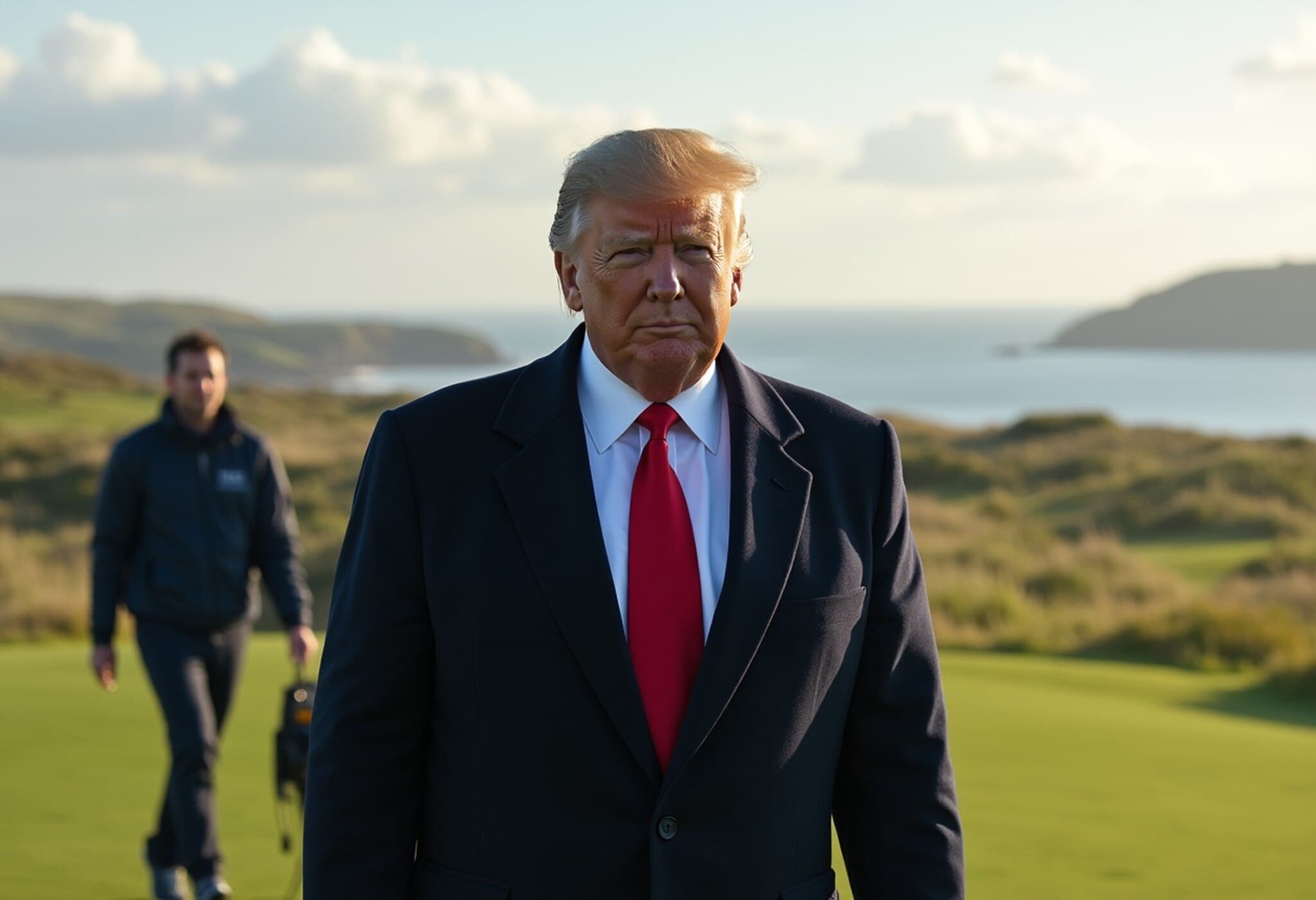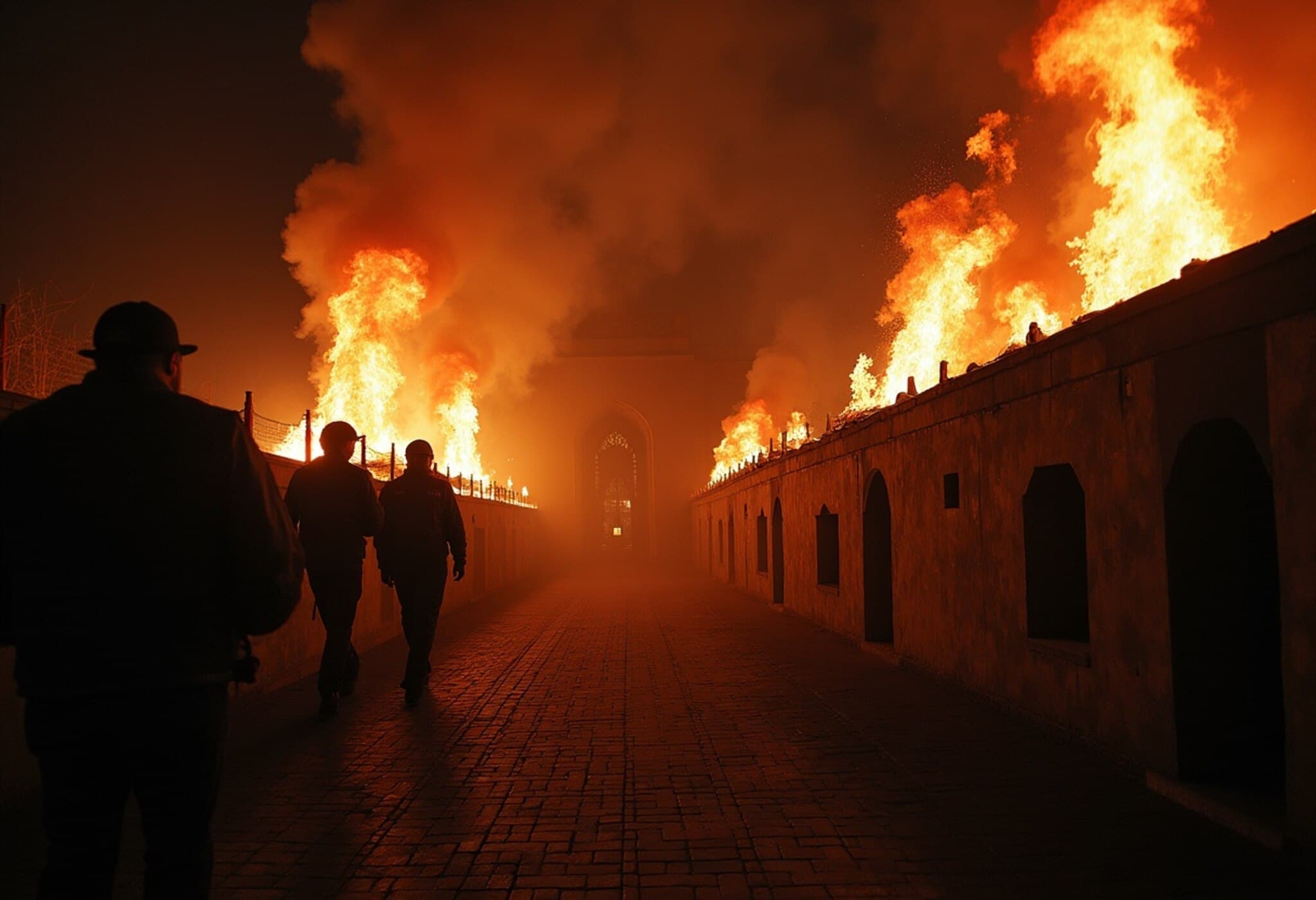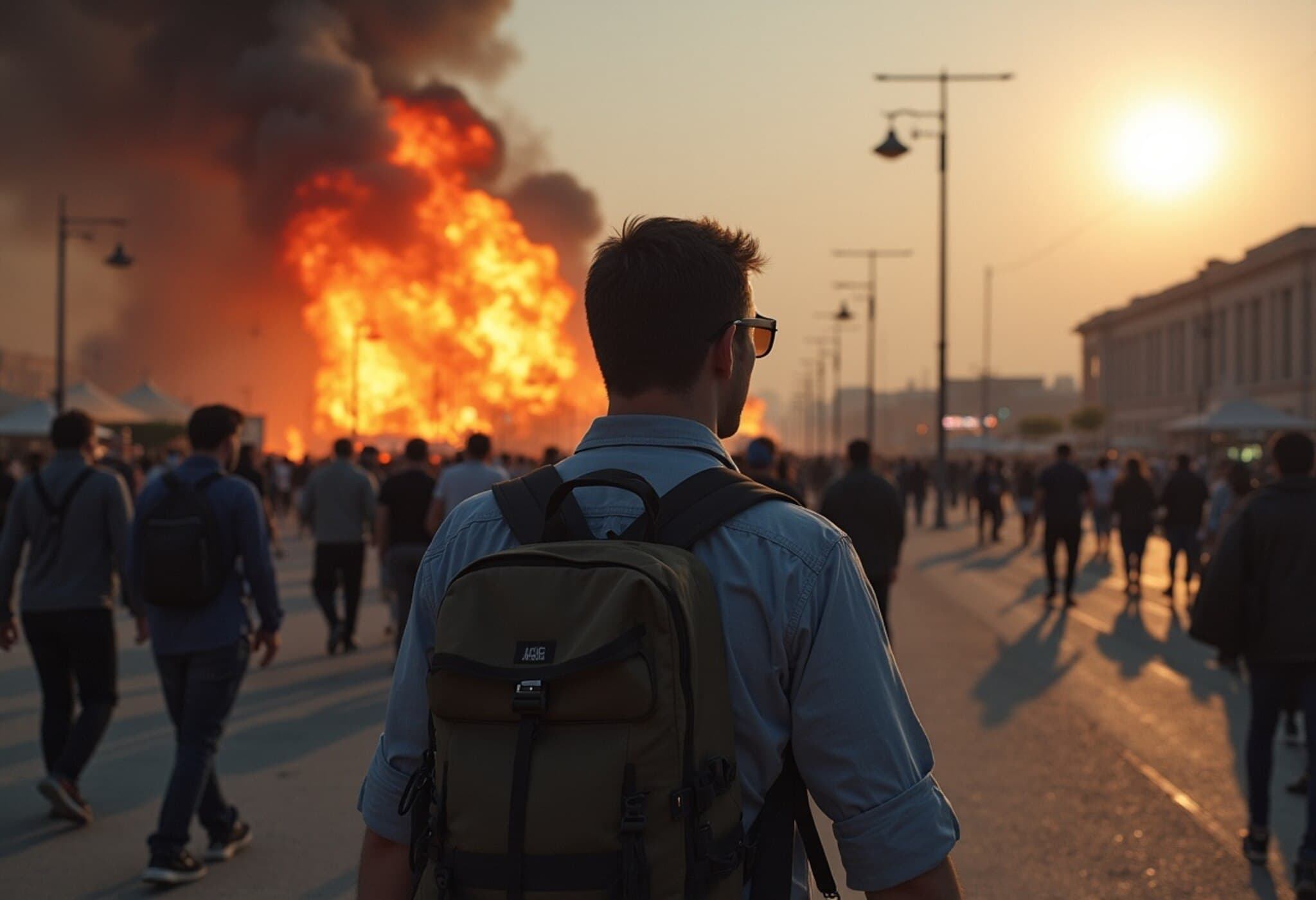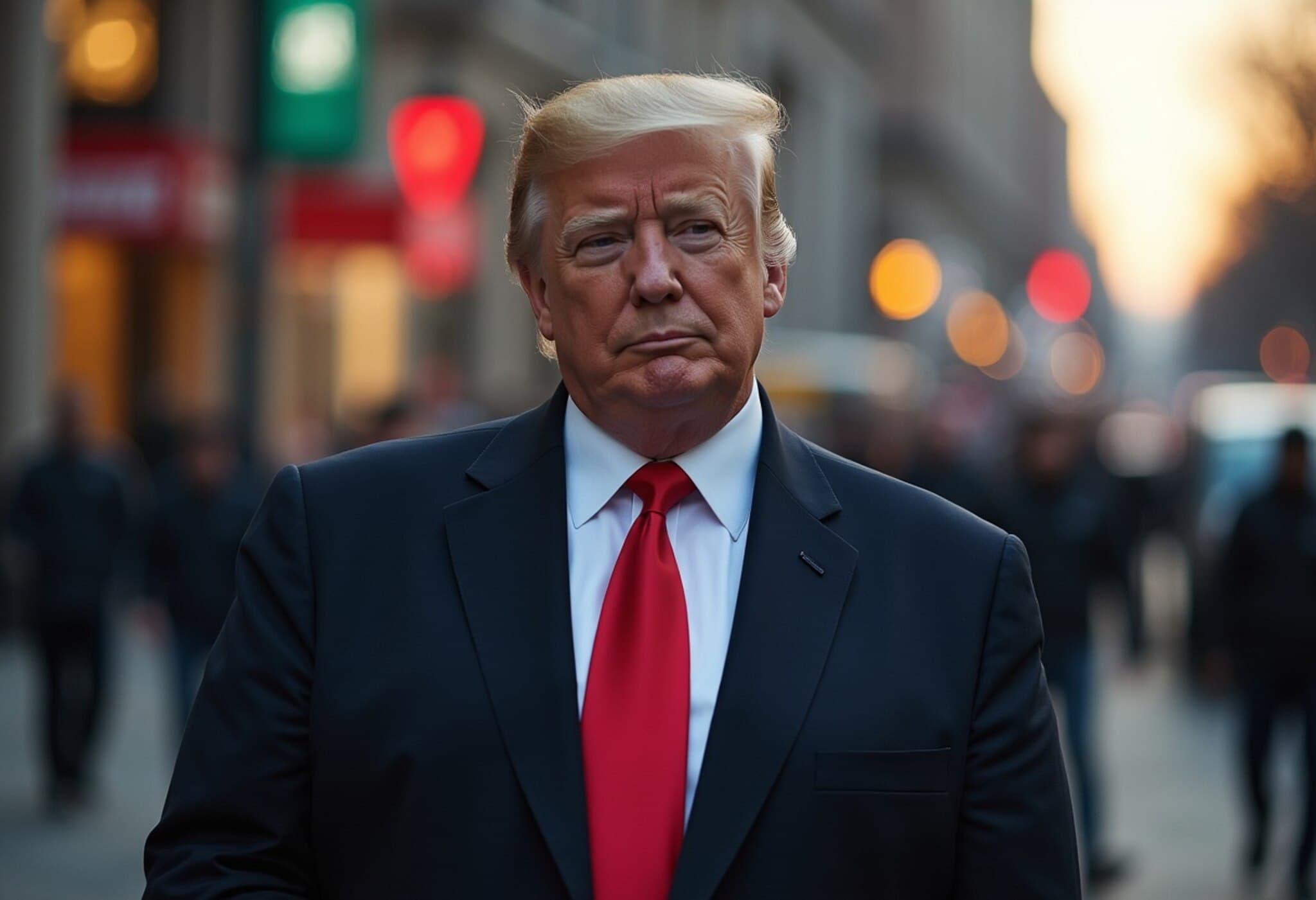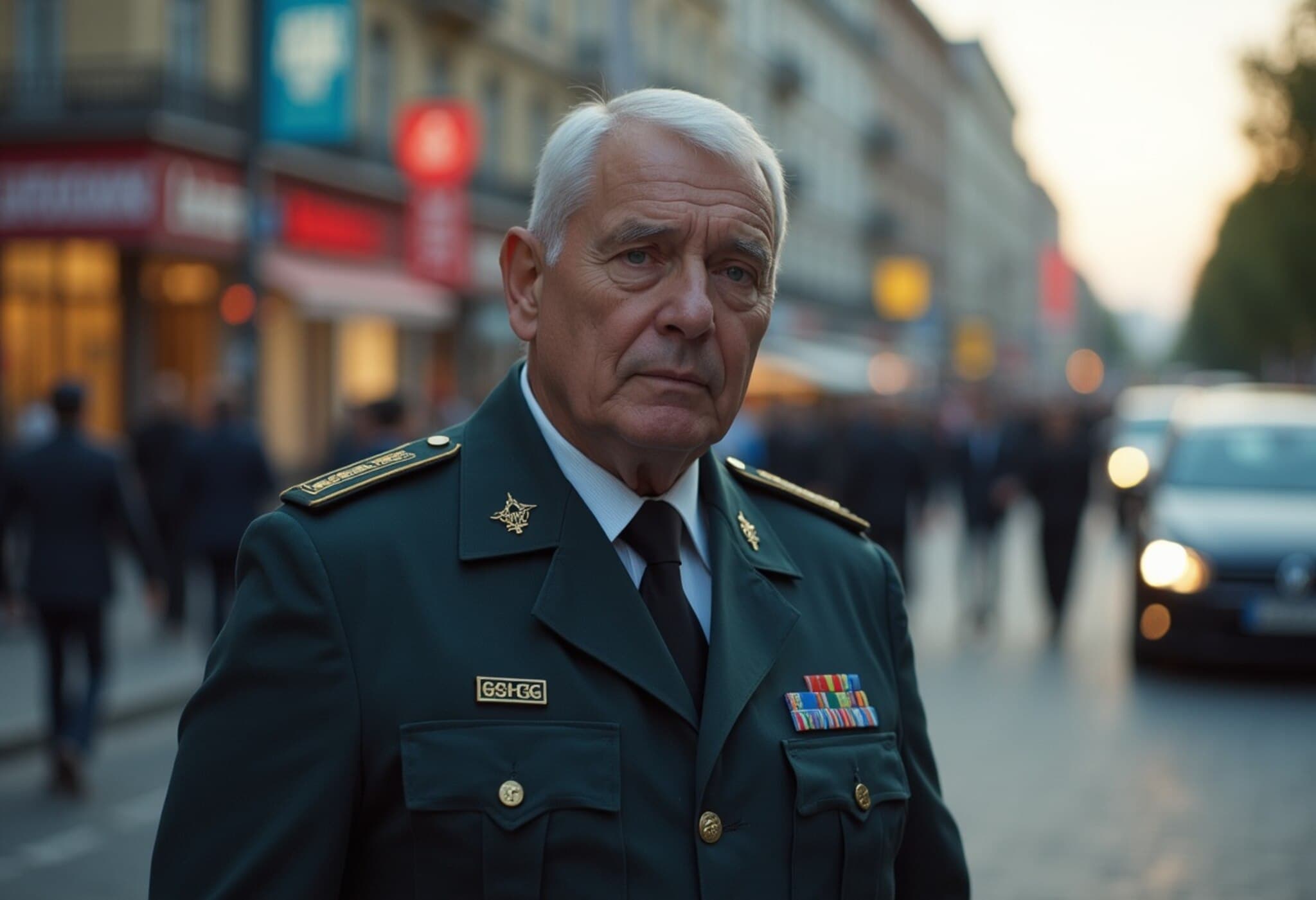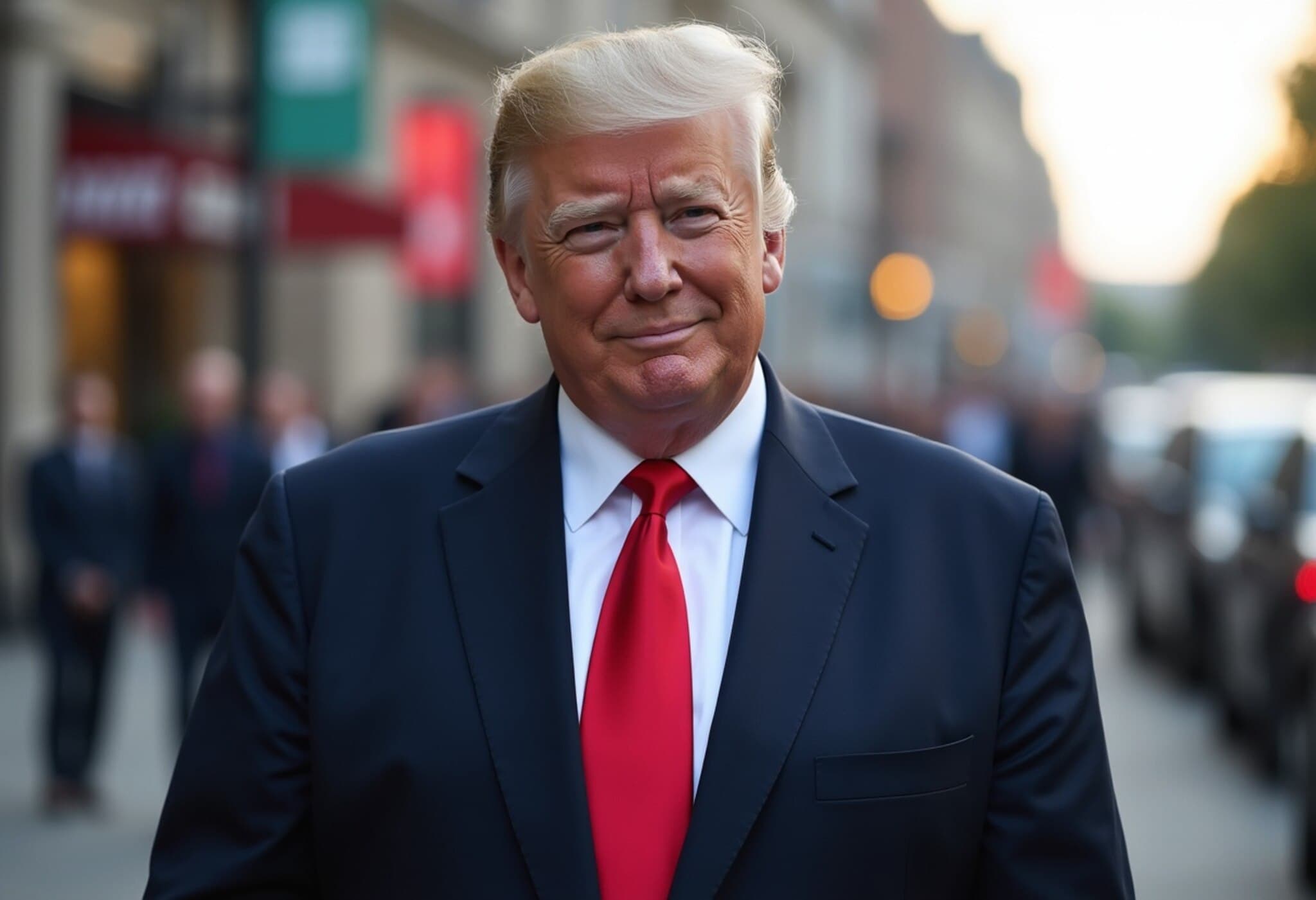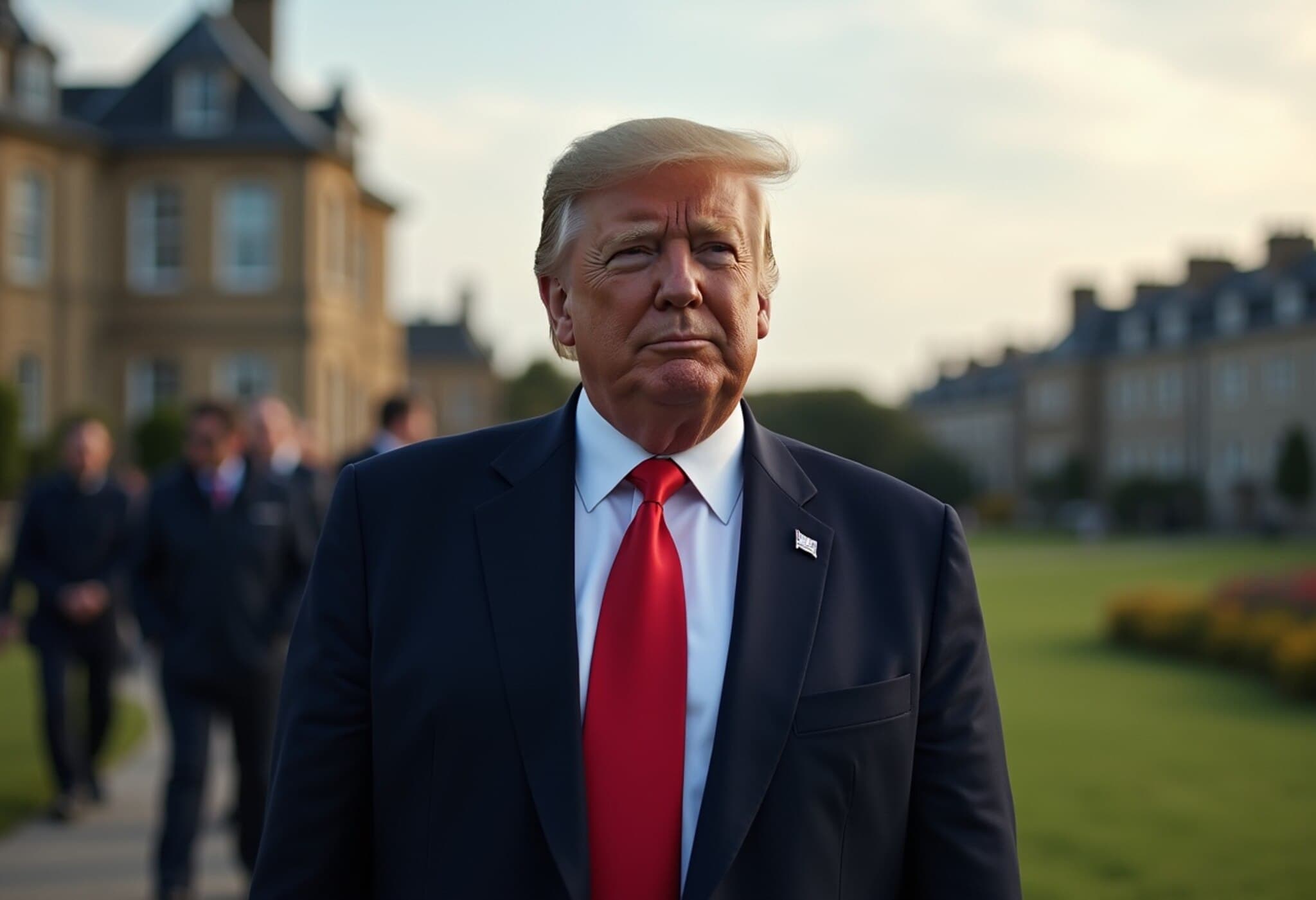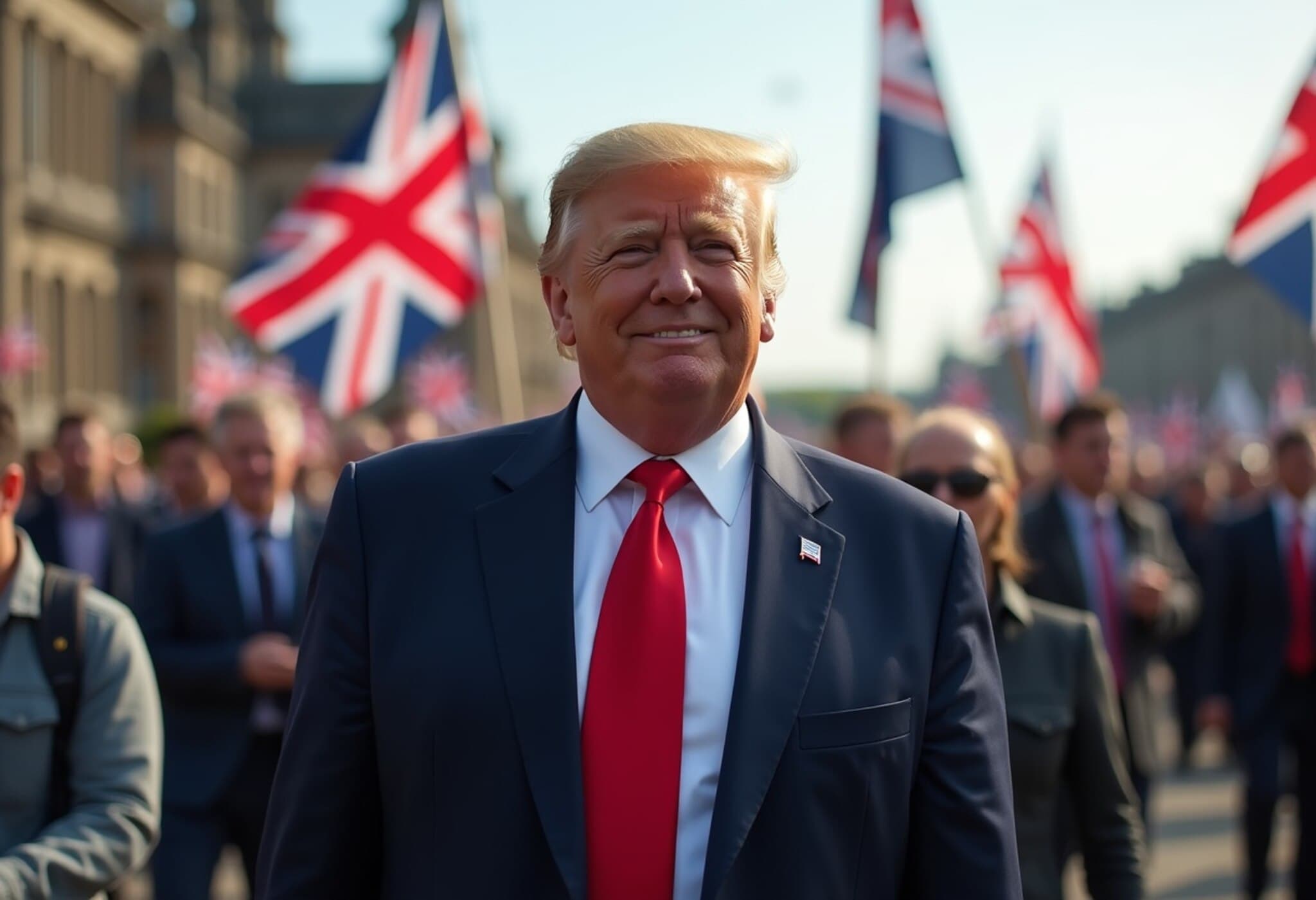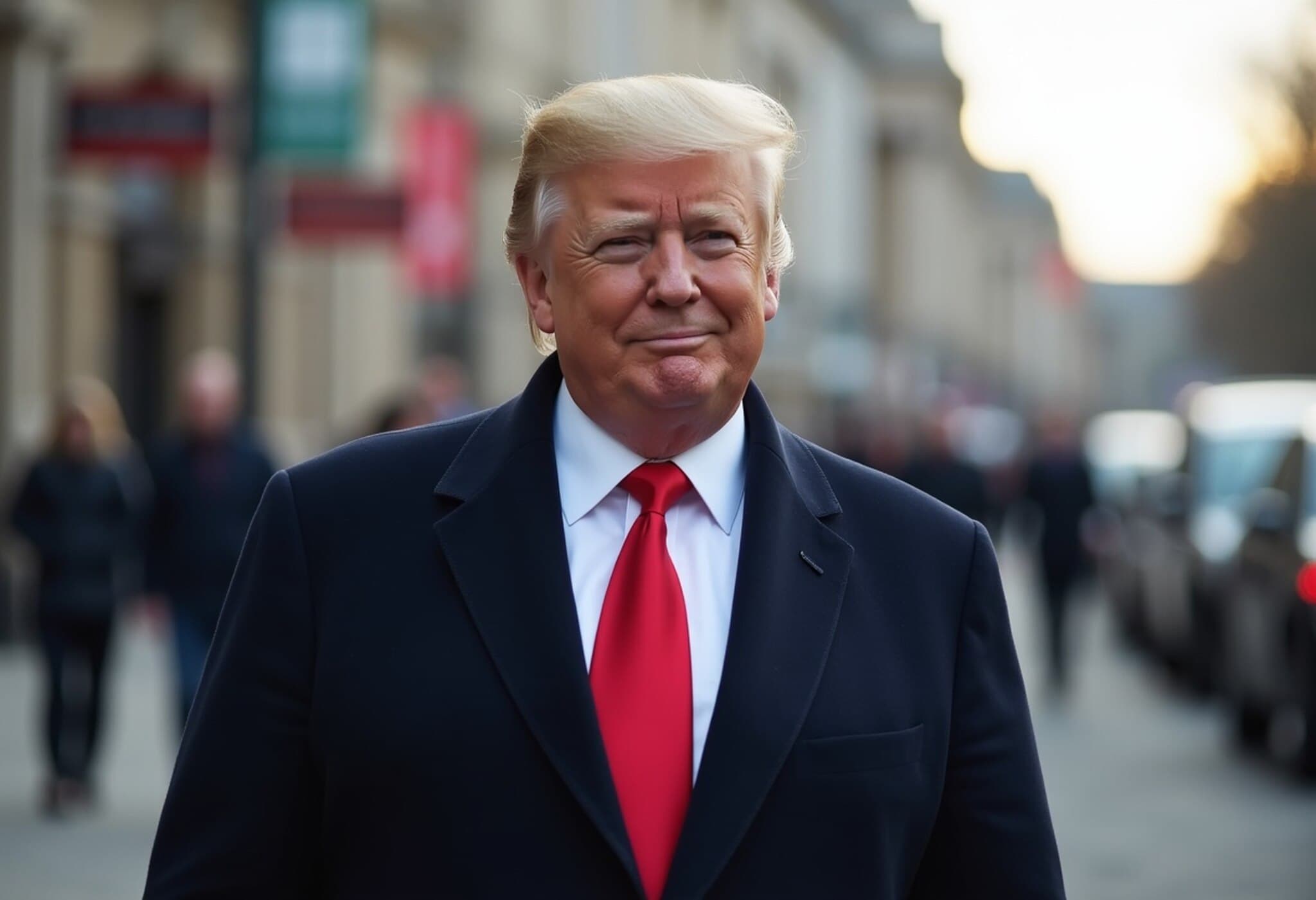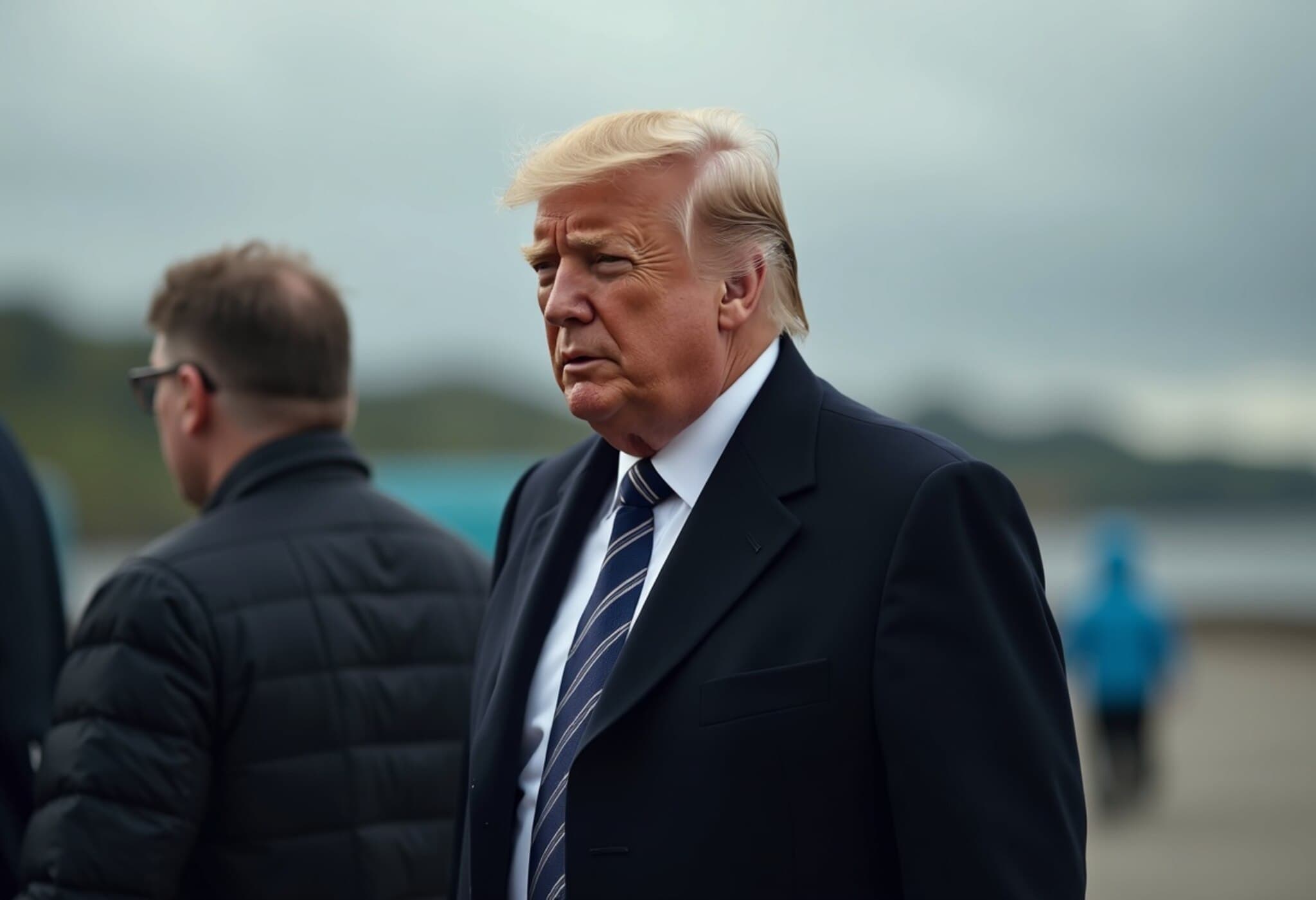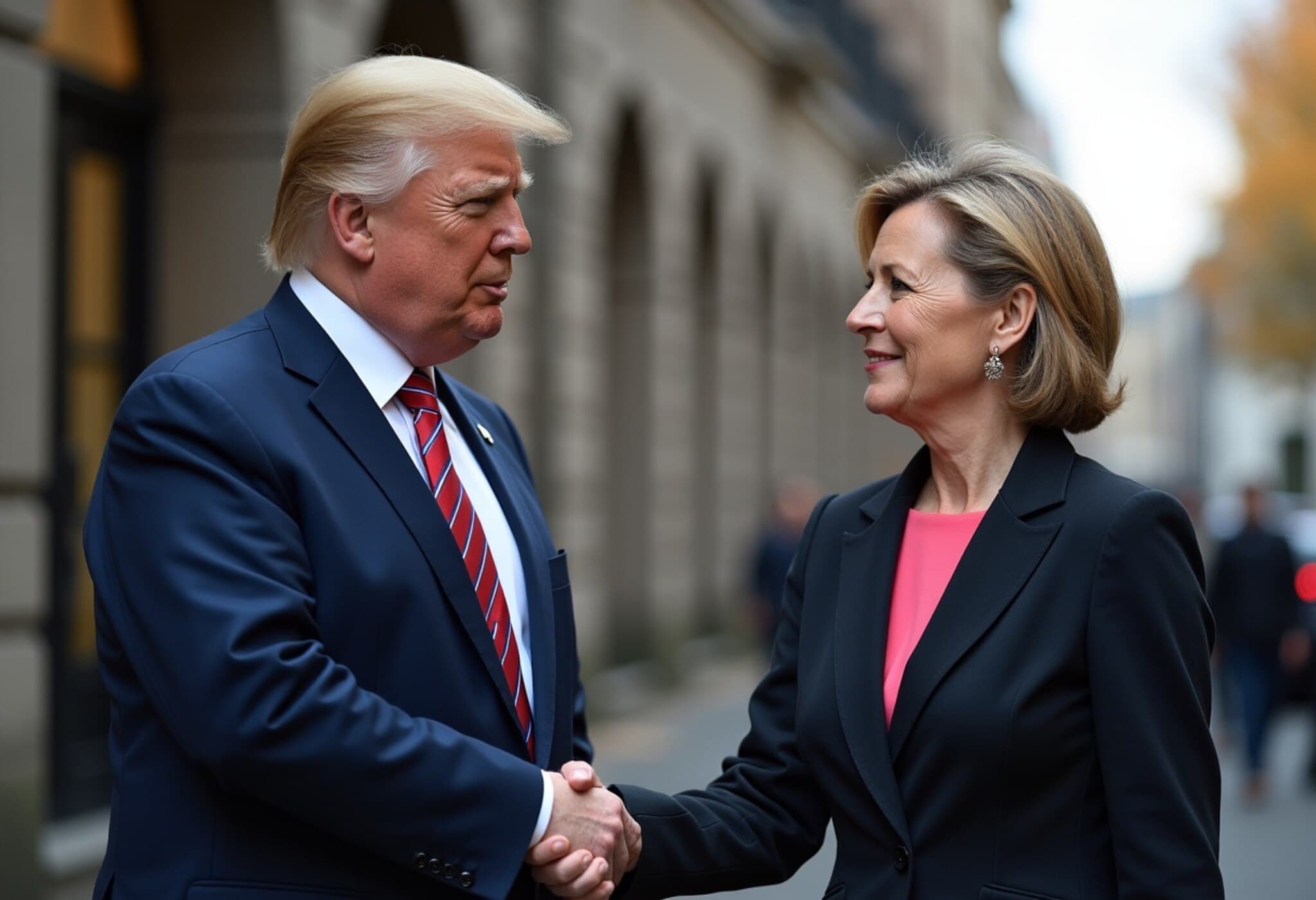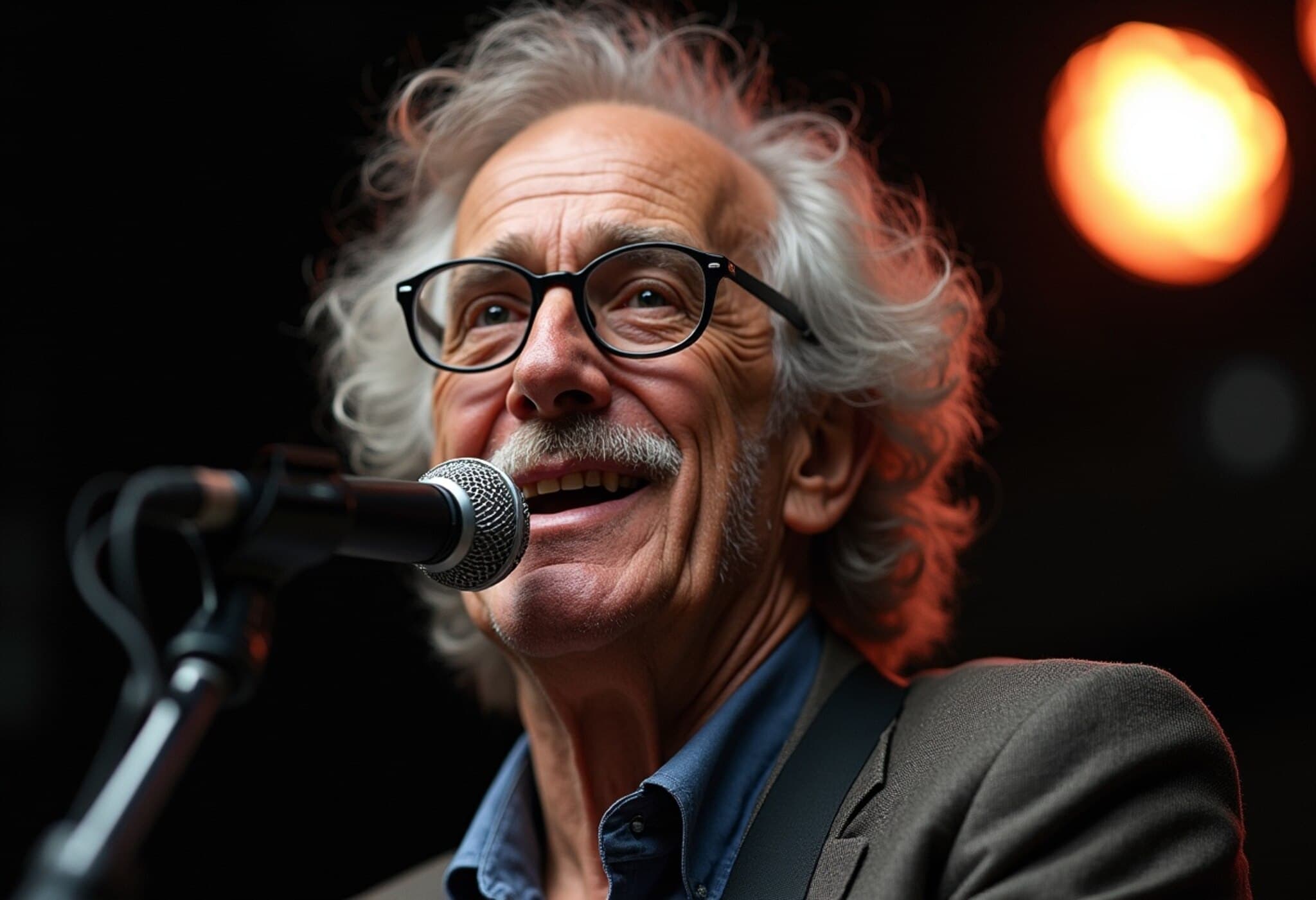Trump’s Turnberry Visit: An Unprecedented Security Upgrade in Scotland
Donald Trump’s recent appearance at his renowned Turnberry golf course in South Ayrshire, Scotland, was marked by heightened security measures, including the use of a strikingly armored golf buggy nicknamed “Golf Force One.” This vehicle, designed to closely follow Trump during his rounds, signals a significant evolution in protective tactics for personal security at high-profile locations.
The Armored Buggy: A Golf Cart Like No Other
The vehicle, reportedly a reinforced Polaris Ranger XP, is far from your standard golf cart. Observers and experts have noted its heavily armored exterior, featuring bullet-resistant glass and fortified side panels that evoke comparisons to “The Beast”—the official presidential limousine known for its impenetrability. A vehicle armor specialist told The Telegraph, “From those photos, that is 100 percent armored. The windscreen is a giveaway, as are the side panels, doors, and the large panel at the rear.”
Although the U.S. Secret Service has declined to disclose detailed specifications, a spokesperson mentioned the agency employs “a variety of tools” to ensure the safety of their protectees. This armored buggy could serve as a rapid escape vehicle on the sprawling course, showcasing the lengths security teams go to protect a former president, even during leisure activities.
Contextualizing Trump’s Scottish Roots and Political Tensions
Trump’s connection to Scotland runs deep, rooted in his maternal lineage. His late mother, Mary Anne MacLeod, hailed from the Isle of Lewis, providing the former president a personal affinity for the region. However, this visit was anything but simple hospitality.
Demonstrations erupted not just in South Ayrshire but across major UK cities like Edinburgh, under banners such as the “Stop Trump coalition.” Protesters voiced sharp opposition to Trump’s political ideologies, encapsulating broader societal tensions.
The Voices of Protest: Youth and Activism
Among the demonstrators was Amy White, a 15-year-old protester in Edinburgh, who held a sign boldly declaring, “We don’t negotiate with fascists.” She reflected a deep sense of urgency and frustration shared by many young people and activists unsettled by Trump’s political stance. “We’re here together because we hate him,” she remarked, emphasizing the collective dissent.
A Lone Intruder at Turnberry
In a testament to security’s challenges, Matt Halliday, a solitary protester, managed to breach the golf course’s defenses. Brandishing signs that referenced Trump’s controversial links, including those relating to Jeffrey Epstein, and mocking him with a bagpipe-themed message, Halliday highlighted cracks even in the tightest security protocols.
Golfing Amid Controversy: Trump’s Round with Close Associates
Despite the visible unrest and stringent protection, Trump completed his game alongside his son Eric and U.S. ambassador Warren Stephens. The juxtaposition of his serene golfing experience with the vocal protests paints a complex picture of polarized public opinion and the constant balancing act between personal freedom and security concerns.
Regional and Security Implications
This episode sheds light on the evolving nature of security for political figures, even post-office, notably in regions where their presence might provoke local opposition. For Scotland, it reopens discussions on the intersection of local identity, international politics, and public safety.
The armored buggy symbolizes a new frontier of security personalization, offering insights into how former heads of state might navigate public engagements amid contentious political climates.
Looking Ahead: What Does ‘Golf Force One’ Mean for Security Protocols?
As security technology advances, the deployment of such specialized vehicles may become standard for high-profile individuals in vulnerable environments. It also prompts crucial questions about the balance between accessibility, security, and public protest rights at private venues that become focal points of political expression.
Editor’s Note
The emergence of "Golf Force One" at Turnberry reflects not only advances in protective technology but also the enduring complexities surrounding Donald Trump’s international presence. As public figures increasingly face polarized receptions globally, security strategies must adapt without overshadowing democratic expressions like protest. This incident invites deeper reflection on how societies manage safety, civil liberties, and political dissent in shared spaces.

